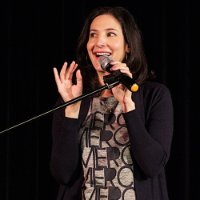I was listening to the Barnes and Noble Meet the Author’s podcast today. Authors from across the publishing landscape discuss their latest book and their life as an author. Specifically, they speak about the books that influenced them as children and how they began their writing careers.
Again and again, I listened to authors talk about how they quit their jobs, took sabbaticals, moved to England and otherwise devoted a year or more to their first novel, carving out huge swaths of their lives in order to write their masterpiece.
While this sounds fine and dandy for someone who is married to a breadwinner or has spent enough time on Wall Street to amass a small fortune, many writers are not this fortunate. This is the message that I try to convey to would-be writers who waste away their time under the delusion that writing requires a full-time commitment.
Not so.
While I may one day write full time, I continue to work as an elementary school teacher, meaning that between my job, my fifteen-month old daughter, and my DJ business, my time is limited. Yet in the span of five years, I’ve managed to write three novels.
How?
I take advantage of every moment I get.
Sometimes this means that I sit down for ten-minute increments, and sometimes this means I spend an entire Saturday afternoon working on my book. I write whenever I can, wherever I can, and my priority is words-on-the-page. I don’t spend time making myself tea, clearing off the table, driving to the local coffee shop or any of the other time-wasting rituals with which so many writers seem so enamored.
Words-on-the-page. That is what writing is about. All the rest is fluff.
My wife and daughter went to the store for milk. I put my butt in the chair and write.
I’m waiting for a parent to pick up a student who has missed the bus. I open my laptop and begin pecking away.
My wife has decided to fold some laundry before we watch this week’s episode of Lost. I’ll use the fifteen minutes to write.
I worry that too many would-be writers hear about the year-long sabbatical, the book-lined office, and the late-morning and early-afternoon writing schedule and assume that they must do the same in order to write successfully. While I may long for a day of full time writing in a quiet office surrounded by my books and a fountain soda dispenser, for now I write at the kitchen table, in the teacher’s lounge during lunch, on trains and planes, and anywhere else that I can carve out ten minutes or more.
I wrote on my wedding day, on every day of my honeymoon, and I was literally writing between my wife’s contractions on the day that my daughter was born.
I write whenever I have time.
Jane Friedman of Writer’s Digest writes that those who don’t have time to write:
- haven’t yet made the necessary sacrifices to create time (like giving up TV or sleep)
- OR don’t yet have the discipline to set aside the time to write
- AND may be too afraid to make the time (fear of failing or starting at all)
While Jane eventually discounts these assumptions in her piece, realizing that she simply did not have the time or energy because of outside forces, I don’t discount them at all. I think her initial instincts were correct.
If you can’t find time to write and you still have time to watch television, you have time to write.
If you can’t find time to write but are unwilling to sacrifice thirty minutes of sleep every morning in order to write, you have time to write.
If you can’t find the time to write but are unwilling to disconnect from the Internet, you have time to write.
My favorite quote seems apropos here:
“Don’t say you don’t have enough time. You have exactly the same number of hours per day that were given to Helen Keller, Pasteur, Michaelangelo, Mother Teresa, Leonardo da Vinci, Thomas Jefferson, and Albert Einstein.”
– H. Jackson Brown
My only complaint about Brown’s quote is that hours should be minutes.
Got ten minutes? Sit down and write.








